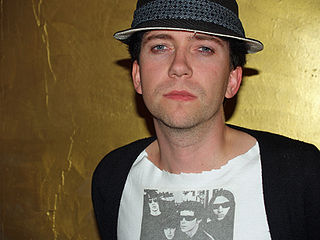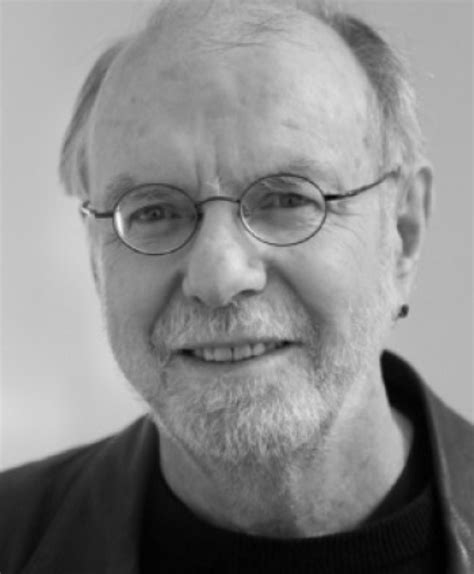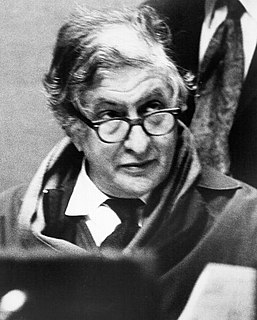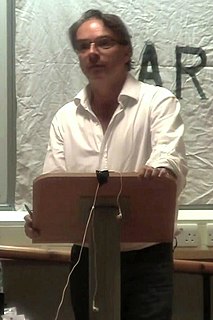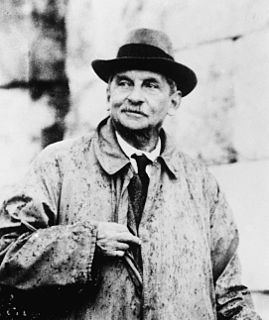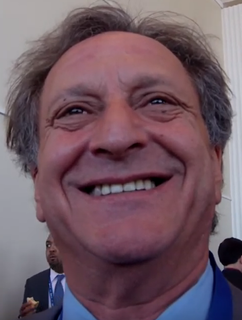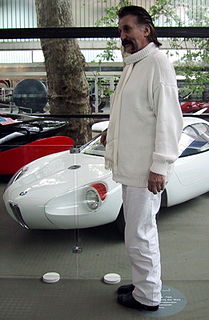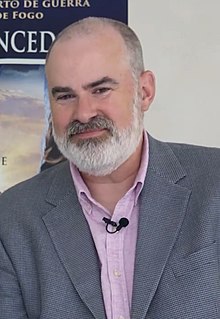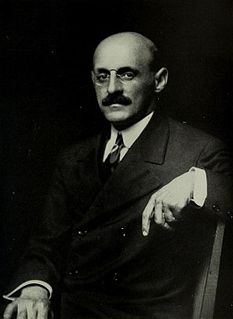Top 1200 Modern Conveniences Quotes & Sayings - Page 6
Explore popular Modern Conveniences quotes.
Last updated on April 20, 2025.
I don't really care about labels that much. I wouldn't really call our music retro. There are influences of things from the past, which there is in everything. I think we're quite a modern band, actually. We don't record with old equipment. We use computers and programmed drums. We don't use any guitar amplifiers. We're very much a modern band in the sense that we love computers and what they can do to music. I guess we're just good at a different sound.
Christian socialism”). This is a difficult concept for modern liberals to grasp because they are used to thinking of the progressives as the people who cleaned up the food supply, pushed through the eight hour workday, and ended child labor. But liberals often forget that the progressives were imperialists, at home and abroad. They were the authors of Prohibition, the Palmer Raids, eugenics, loyalty oaths, and, in its modern incarnation, what many call “state capitalism.
We segregate men from women, and no matter how many times we insist that men and women are equal, men and women should be treated the same, when it comes to the moment of excretion, even the most modern society - especially the most modern society - segregates two restrooms with little icons outside the doors, one wearing a dress, one wearing pants.
The modern way with God is to set him at a distance, if not to deny him altogether; and the irony is that modern Christians, preoccupied with maintaining religious practices in an irreligous world, have themselves allowed God to become remote...for churchmen who look at God through the wrong end of the telescope, so reducing him to pigmy proportions, cannot hope to end up as more than pigmy Christians.
The idea of childhood as a social invention, in retrospect, is hardly credible. In the Bible, in writings of the Greeks and Romans, and in the works of the first great educator of the modern era, Comenius, children were recognized as being both different from adults and different from one another with respect to their stages of development. To be sure, the scientific study of children and the increased length of life in modern times have enhanced our understanding of age differences, but they have always been acknowledged.
Persons who clamor for governmental control of American railways should visit Germany, and above all Russia, to see how such control results. In Germany its defects are evident enough; people are made to travel in carriages which our main lines would not think of using, and with a lack of conveniences which with us would provoke a revolt; but the most amazing thing about this administration in Russia is to see how, after all this vast expenditure, the whole atmosphere of the country seems to paralyze energy.
Humans in modern societies are driven by a perhaps desperate hope that they might find some way of mobilizing their theoretical and empirical knowledge and their evaluative systems so as both to locate themselves and their projects in some larger imaginative structure that makes sense to them. ... Furthermore, many modern agents would like it to be the case that the form of orientation which their life has is, if not true, at least compatible with the best available knowledge.
The God of the modern evangelical rarely astonishes anybody. He manages to stay pretty much with the constitution. Never break our by-laws. He's a very well-behaved God and very denominational and very much like one of us...we ask Him to help us when we're in trouble and look to Him to watch over us when we're asleep. The God of the modern evangelical isn't a God I could have much respect for.
As a composer I might class myself as a Neo-Romantic, inasmuch as I have always regarded music as a highly personal and emotional form of expression. I like to write music which takes its inspiration from poetry, art and nature. I do not care for purely decorative music. Although I am in sympathy with modern idioms, I abhor music which attempts nothing more than the illustration of a stylistic fad. And in using modern techniques, I have tried at all times to subjugate them to a larger idea or a grander human feeling.
The ‘Great Society’ has not worked and it’s put us into the modern welfare state. If you look at China, they don’t have food stamps. If you look at China, they’re in a very different situation. They save for their own retirement security…they don’t have the modern welfare state and China’s growing. And so what I would do is look at the programs that LBJ gave us with the Great Society and they’d be gone.
Don't neglect your critical faculties. Remember that God is a rational God, who has made us in His own image. God invites and expects us to explore His double revelation, in nature and Scripture, with the minds He has given us, and to go on in the development of a Christian mind to apply His marvellous revealed truth to every aspect of the modern and post-modern world.
People think that they have no right to judge a fact - all they have to do is to accept it. Thus from the moment that technics, the State, or production, are facts, we must worship them as facts, and we must try to adapt ourselves to them. This is the very heart of modern religion, the religion of the established fact, the religion on which depend the lesser religions of the dollar, race, or the proletariat, which are only expressions of the great modern divinity, the Moloch of fact.
We've demonstrated in modern countries or industrialized countries that women can do what men can do, but we have not demonstrated that men can do what women can do therefore children are still mostly raised, hugely mostly raised by women and women in industrialized modern countries end up having two jobs one outside the home and one inside the home.
The link between literacy and revolutions is a well-known historical phenomenon. The three great revolutions of modern European history -- the English, the French and the Russian -- all took place in societies where the rate of literacy was approaching 50 per cent. Literacy had a profound effect on the peasant mind and community. It promotes abstract thought and enables the peasant to master new skills and technologies, Which in turn helps him to accept the concept of progress that fuels change in the modern world.
What vast additions to the conveniences and comforts of living might mankind have acquired, if the money spent in wars had been employed in works of public utility; what an extension of agriculture even to the tops of our mountains; what rivers rendered navigable, or joined by canals; what bridges, aqueducts, new roads, and other public works, edifices, and improvements might not have been obtained by spending those millions in doing good, which in the last war have been spent in doing mischief.
Today’s milestone is human madness. Politics is a part of it, particularly in its lethal outbursts. Politics is not, as it was for Hannah Arendt, the field where human freedom is unfurled. The modern world, the world of world war, the Third World, the underground world of death that acts upon us, do not have the civilized splendor of the Greek city state. The modern political domain is massively, in totalitarian fashion, social, leveling, exhausting. Hence madness is a space of antisocial, apolitical, and paradoxically free individuation
The student is half afraid to meet one of the great philosophers face to face. He feels himself inadequate and thinks he will not understand him. But if he only knew, the great man, just because of his greatness, is much more intelligible than his modern commentator. The simplest student will be able to understand, if not all, yet a very great deal of what Plato said; but hardly anyone can understand some modern books on Platonism.
Commentators frequently blame MMORPGs for an increasing sense of isolation modern life. But virtual worlds are less a cause of that isolation than a response to it. Virtual worlds give back what has been scooped out of modern life. The virtual world is in important ways more authentically human than the real world. It gives us back community, a feeling of competence, and a sense of being an important person whom people depend on.
Modern schools and universities push students into habits of depersonalized learning, alienation from nature and sexuality, obedience to hierarchy, fear of authority, self-objectification, and chilling competitiveness. These character traits are the essence of the twisted personality-type of modern industrialism. They are precisely the character traits needed to maintain a social system that is utterly out of touch with nature, sexuality and real human needs.
Everything in modern city life is calculated to keep man from entering into himself and thinking about spiritual things. Even with the best of intentions a spiritual man finds himself exhausted and deadened and debased by the constant noise of machines and loudspeakers, the dead air and the glaring lights of offices and shops, the everlasting suggestion of advertising and propaganda. The whole mechanism of modern life is geared for a flight from God and from the spirit into the wilderness of neurosis.
How would you describe the difference between modern war and modern industry-between say, bombing and strip mining, or between chemical warfare and chemical manufacturing? The difference seems to be only that in war the victimization of humans is directly intentional and in industry it is "accepted" as a "trade-off." Were the catastrophes of Love Canal, Bhopal, Chernobyl, and the Exxon Valdez episodes of war or of peace? They were in fact, peacetime acts of aggression, intentional to the extent that the risks were known and ignored.
Modern art to me is nothing more than the expression of contemporary aims of the age we’re living in. All cultures have had means and techniques of expressing their immediate aims – the Chinese, the Renaissance, all cultures. The thing that interests me is that today painters do not have to go to a subject matter outside of themselves. Most modern painters work from a different source, they work from within.
A man has a right to use a saw, an axe, a plane, separately; may he not combine their uses on the same piece of wood? He has a right to use his knife to cut his meat, a fork to hold it; may a patentee take from him the right to combine their use on the same subject? Such a law, instead of enlarging our conveniences, as was intended, would most fearfully abridge them, and crowd us by monopolies out of the use of the things we have.
Modern man has been in search of a new language of form to satisfy new longings and aspirations - longings for mental appeasement, aspirations to unity, harmony, serenity - an end to his alienation from nature. All these arts of remote times or strange cultures either give or suggest to the modern artist forms which he can adapt to his needs, the elements of a new iconography.
Propelled by freedom of faith, gender equality and economic justice for all, India will become a modern nation. Minor blemishes cannot cloak the fact that India is becoming such a modern nation: no faith is in danger in our country, and the continuing commitment to gender equality is one of the great narratives of our times.
The anorexic is the fuse nakedly exposed to the direct power of modern media, a psyche whose wiring has no insulation. The anorexic is an analog to the ideologue, who is likewise devoid of common sense, independent ego, culture, intuitive intelligence, etc.: all the ideologue has to orient himself by is the formalist or abstractivist directives inlaid in modern mass-culture. Both are forms of the True Believer, minds in whom factors of self-active life are reduced to negligibility and pathos reigns.
We're all born listeners. And as a result of our modern lives, and living in a world that has less meaning than the natural world that we evolved to hear, we learn to think of listening not as taking in all the information with equal value, which is the definition of true listening. In our modern world, we tend to think of listening as focusing our attention on what is important and filtering out everything else.
In India there was a sense of time that does not tick with modern clocks, just as there is a knowledge that is not gained through science and empirical experiments. In the modern West knowledge is of objective, finite particulars in historical time. India recognizes that kind of useful information: it calls it "lower knowledge." Higher knowledge (paravidya) proceeds differently, or rather it doesn't proceed at all but enters history full-blown on the morning of a new creation.
If they weren't so dangerous and destructive, one could smile and pat the Modern Liberal on the head and tell him how cute he is and go on about the business of being an adult. But he is dangerous and destructive, with the True Believer's very purpose being the total destruction of everything that God and science-most obviously Western Civilization-has ever created. ...The Modern Liberal will invariably and, in fact, inevitably side with evil over good, wrong over right and the behaviors that lead to failure over those that lead to success.
I want to try to come away from that one directional, clear rectangular form. It's not used because it's the most beautiful form; it's just the practical thing. That's why our TVs are rectangles. Even in modern architecture, they want us to believe, "That's the nicest, most beautiful thing." I love modern architecture, but actually it's that they cannot afford amorphous shapes or ornaments.
It is arguable whether the human race have been gainers by the march of science beyond the steam engine. Electricity opens a field of infinite conveniences to ever greater numbers, but they may well have to pay dearly for them. But anyhow in my thought I stop short of the internal combustion engine which has made the world so much smaller. Still more must we fear the consequences of entrusting a human race so little different from their predecessors of the so-called barbarous ages such awful agencies as the atomic bomb. Give me the horse.
Walking with someone through grief, or through the process of reconciliation, requires patience, presence, and a willingness to wander, to take the scenic route. But the modern-day church doesn't like to wander or wait. The modern-day church likes results. Convinced the gospel is a product we've got to sell to an increasingly shrinking market, we like our people to function as walking advertisements: happy, put-together, finished - proof that this Jesus stuff WORKS!
All of modern acting comes from Stanislavski, who was the Russian partner to Chekhov. When Chekhov was writing his plays, Stanislavski was running his theater. And Stanislavski really was the first inventor of modern acting and then everything that came out of the method and Stella Adler and the great teachers really came out of him.
The essence of totalitarian government, and perhaps the nature of every bureaucracy, is to make functionaries and mere cogs in the administrative machinery out of men, and thus to dehumanize them. And one can debate long and profitably on the rule of Nobody, which is what the political form known as bureau-cracy truly is….we have become very much accustomed by modern psychology and sociology, not to speak of modern bureaucracy, to explaining away the responsibility of the doer for his deed in terms of this or that kind of determinism.
Originally the structure was . . . a modern narrator who would appear intermittently and talk about his memories of his grandmother, which would then be juxtaposed against scenes from the past. But the stories from the past were always more interesting that the things in the present. I find this almost endemic to modern plays that veer between past and present. . . . So as we've gone on developing GOLDEN CHILD, the scenes from the past have become more dominant, and all that remains of the present are these two little bookends that frame the action.
America is very conservative. It is not a very modern country. If you look at the population, they are very serious, very nice, very good people. I love the Americans. But they are too serious to be modern. But it's not too late. With the last election, America has proven that it's a very young country at heart. We have big hopes in the world that we can again love America for what it is.
While much of modern behavioral and social science treats individuals as autonomous agents, it is absolutely clear that the way we think and act is enormously influenced by the culture in which we live. It also is clear that the major elements of modern culture-science, technology, law, music, and religion-have evolved over time in a quite concrete sense of the term. Mesoudi makes these arguments very well and his book is a very good read.
The modern age has been characterized by a Promethean spirit, a restless energy that preys on speed records and shortcuts, unmindful of the past, uncaring of the future, existing only for the moment and the quick fix. The earthly rhythms that characterize a more pastoral way of life have been shunted aside to make room for the fast track of an urbanized existence. Lost in a sea of perpetual technological transition, modern man and woman find themselves increasingly alienated from the ecological choreography of the planet.
A Call for Revolution, 1993 Libertarianism is rejected by the modern left - which preaches individualism but practices collectivism. Capitalism is rejected by the modern right - which preaches enterprise but practices protectionism. The libertarian faith in the mind of man is rejected by religionists who have faith only in the sins of man. . . . The libertarian insistence that each man is a sovereign land of liberty, with his primary allegiance to himself, is rejected by patriots who sing of freedom but also shout of banners and boundaries.
Wars between states and people seem to have existed under all historical systems for as long as we have some recorded evidence. War is quite clearly not a phenomenon particular to the modern world-system. On the other hand, once again the technological achievements of capitalist civilization serve as much ill as good. One bomb in Hiroshima killed more people than whole wars in pre-modern times. Alexander the Great in his whole sweep of the Middle East could not compare in destructiveness to the impact of the Gulf War on Iraq and Kuwait.
Coupled with Usury, Unrestricted Competition destroys the small man for the profit of the great and in so doing produces that mass of economically unfree citizens whose very political freedom comes in question because it has no foundation in any economic freedom, that is, any useful proportion of property to support it. Political freedom without economic freedom is almost worthless, and it is because the modern proletariat has the one kind of freedom without the other that its rebellion is now threatening the very structure of the modern world.
We have educated ourselves into a world from which wonder, and he fear and dread and splendor and freedom of wonder have been banished. Of course wonder is costly. You couldn't incorporate it into a modern state, beacuse it is the antithesis of the anxiously worshiped security which is what a modern state is asked to give. Wonder is marvellous but it is also cruel, cruel, cruel. It is undemocratic, discriminatory and pitiless.
For 500 years the West patented six killer applications that set it apart. The first to download them was Japan. Over the last century, one Asian country after another has downloaded these killer apps- competition, modern science, the rule of law and private property rights, modern medicine, the consumer society and the work ethic. Those six things are the secret sauce of Western civilization.
We are compelled to work more hours per day, receive less pay per hour, pay more for what we buy, and recieve less for what we sell. The consequence is that we must work harder and more hours per day than we should, and in the end have less than what is due to us as our part of the advantages, conveniences and opportunities resulting from advancing civilization.
Justice demands that the good and hard-working be rewarded and the evil and the lazy be punished (if only by the withholding of the rewards of doing the right things). Modern Liberalism demands that the good and hardworking be punished as the recipients of an unfair advantage and the evil and the lazy be rewarded, their acts of evil and their failure all the proof the Modern Liberal needs that somehow they have been victimized by forces out of their control.
By the respectable terms of the modern literary profession, novelists do not preach. And, in fact, there has probably not been a less respectable novelist among the irrefutably enduring writers of our time than Ayn Rand: philosopher queen of the best-seller lists in the forties and fifties, cult phenomenon and nationally declared threat to public morality in the sixties, guru to the Libertarians and to White House economic policy in the seventies, and a continuing exemplar or Wilde's tragic observation that more than half of modern culture depends on what one shouldn't read.
It is odd that neither the Church nor modern public opinion condemns petting, provided it stops short at a certain point. At what point sin begins is a matter as to which casuists differ. One eminently orthodox Catholic divine laid it down that a confessor may fondle a nun's breasts, provided he does it without evil intent. But I doubt whether modern authorities would agree with him on this point.
Modern presidential debating only started with Richard Nixon and John F.Kennedy in 1960, although the proximity of that to the Lincoln-Douglas centennial is more than accidental. The reason is, I think, the medium. Abraham Lincoln and Stephen A. Douglas were talking, but the talking was in terms of logic, development, and reasoning. Television, as a medium, resists those qualities in speaking - it favors quick cuts, one-liners, and talking points. I think the modern debates are largely the prisoners of the televised medium
With photography, everything is in the eye and these days I feel young photographers are missing the point a bit. People always ask about cameras but it doesn't matter what camera you have. You can have the most modern camera in the world but if you don't have an eye, the camera is worthless. Young people know more about modern cameras and lighting than I do. When I started out in photography I didn't own an exposure meter - I couldn't , they didn't exist! I had to guess.
We made four feature films with Sherwood Baptist. The wonderful thing was the church (members) volunteered. It was an awesome atmosphere of attitudes. The hard part was (that) all four of the first feature films we made take place in modern-day Albany, Georgia. We know that not all of our films going to be (set in) modern-day Albany, Georgia.
Curiosity, which may or may not eventuate in something useful, is probably the most outstanding characteristic of modern thinking ... Institutions of learning should be devoted to the cultivation of curiosity, and the less they are deflected by the consideration of immediacy of application, the more likely they are to contribute not only to human welfare, but to the equally important satisfaction of intellectual interest, which may indeed be said to have become the ruling passion of intellectual life in modern times.
What's holding me up is I'm confused about the nature of the music. Because the modern music doesn't reach me. I mean to say the sound of the modern electric production. A lot of sequencers... synths. That's what people are buying. Because that doesn't reach me, it throws me back to like 1948, but I don't want to be there. Back there, I'm talking about blues records... The roots of rock'n'roll is rhythm and blues and that's like really where I'm at, where I was always at.
What disconcerts the modern world at its very roots is not being sure, and not seeing how it ever could be sure, that there is an outcome-a suitable outcome to evolution. Half our present uneasiness would be turned to happiness if we could once make up our minds to accept the facts and place the essence and the measure of our modern cosmogonies within a noogenesis.
Any historian of the literature of the modern age will take virtually for granted the adversary intention, the actually subversive intention, that characterizes modern writing - he will perceive its clear purpose of detaching the reader from the habits of thought and feeling that the larger culture imposes, of giving him a ground and a vantage point from which to judge and condemn, and perhaps revise, the culture that produces him.
To the chefs who pioneered the nouvelle cuisine in France, the ancienne cuisine they were rebelling against looked timeless, primordial, old as the hills. But the cookbook record proves that the haute cuisine codified early in this century by Escoffier barely goes back to Napoleon's time. Before that, French food is not recognizable as French to modern eyes. Europe's menu before 1700 was completely different from its menu after 1800, when national cuisines arose along with modern nations and national cultures.
Modern civilization is largely devoted to the pursuit of the cult of delusion. There is no general information about the nature of mind. It is hardly ever written about by writers or intellectuals; modern philosophers do not speak of it directly; the majority of scientists deny it could possibly be there at all. It plays no part in popular culture: no one sings about it, no one talks about it in plays, and it's not on TV. We are actually educated into believing that nothing is real beyond what we can perceive with our ordinary senses.
Technologically, modern man does everything he can do-he functions on this single boundary principle. Modern man, seeing himself as autonomous, with no personal-infinite God who has spoken, has no adequate universal to supply an adequate second boundary condition; and man being fallen is not only finite, but sinful. Thus man's pragmatically made choices have no reference point beyond human egotism. It is dog eat dog, man eat man, man eat nature.
